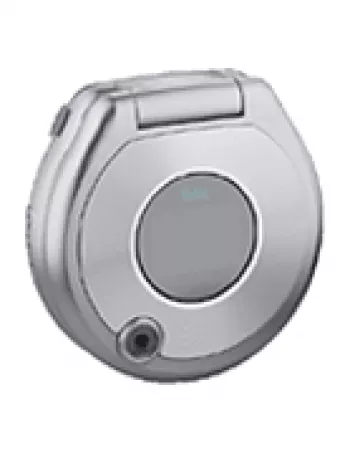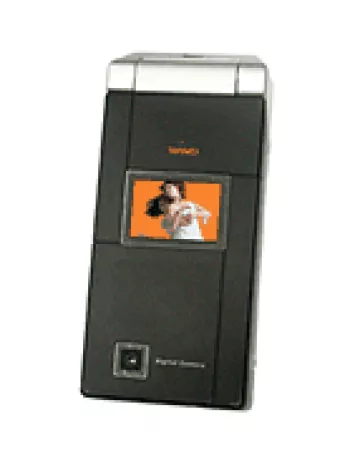
Introduction to Telit GM 882
The Telit GM 882 was a notable feature phone from the early 2000s, representing a time when mobile technology was beginning to gain traction globally. The phone was released during an era where functionality was prioritized over features like high-resolution cameras or touch screens, which dominate modern smartphones.
Network Capabilities
The Telit GM 882 supported GSM technology, which was the standard for mobile communications at the time. It operated on dual bands, GSM 900 and 1800, making it suitable for use in many countries around the world. However, the phone lacked support for more advanced data technologies such as EDGE, which limited its data capabilities primarily to GPRS Class 8.
Body and Design
The physical design of the Telit GM 882 was typical for its time, with dimensions of 107 x 54 x 22 mm and a weight of 100 g. It was compact and relatively lightweight, making it easy to carry around. The design included a Mini-SIM slot, which was the norm for phones in the early 2000s. Despite the lack of modern features, such as a color display or touch interface, its robust design appealed to a minimalist aesthetic preferred by many users back then.
Display
The display on the Telit GM 882 was a monochrome graphic screen with a resolution of 132 x 65 pixels. This kind of display was typical for phones from that era, providing sufficient clarity for reading messages and navigating menus but without the vivid color and high resolution found in modern displays.
Memory and Storage
The device had limited memory capabilities by today’s standards. The phonebook could store 150 entries and allowed for contact grouping, which was a useful feature for organizational purposes. However, it did not support external storage options, as it lacked a card slot. This limited the phone's ability to store extensive data, such as multimedia files.
Sound and Alerts
Sound capabilities were basic, with the phone supporting vibration alerts and monophonic ringtones. There was an inbuilt composer for creating custom ringtones, which was a popular feature. The Telit GM 882 did not support a loudspeaker or a 3.5mm audio jack, settling the phone strictly for basic calling functions and alerts.
Communication and Connectivity
The Telit GM 882 had limited connectivity options, aligning with its role as a basic communications device. It did not support WLAN, Bluetooth, positioning systems, radio, or USB connectivity. This reinforces its functionality as primarily a voice communication and text messaging device, using SMS, EMS, and basic email functionalities. The WAP 1.2.1 browser allowed for the most basic form of internet browsing available at the time.
Additional Features
While the Telit GM 882 lacked sophisticated features, it did include basic tools such as a clock and alarm. It also offered three built-in games, providing simple entertainment options. The phone did not support Java applications, which later became standard for feature phones and allowed for more complex applications and games.
Battery Life
The phone came equipped with a removable NiMH battery with a capacity of 550 mAh. This provided a standby time of up to 200 hours and a talk time of up to 6 hours and 30 minutes, which sufficed for daily usage at the time. The ability to remove and replace the battery added to the phone’s longevity, allowing users to simply replace the battery rather than the entire device when power retention diminished.
Legacy and Discontinuation
Announced in 2002, the Telit GM 882 has since been discontinued. However, it remains a part of mobile phone history as an example of the transitional technology of the early 2000s. Phones like the GM 882 helped lay the foundation for the feature-rich smartphones of today by standardizing basic network capability and mobile communication functions.
Key Features of Telit GM 882
- GSM Technology: Supports GSM 900 / 1800 bands for reliable connectivity.
- Compact Size: Dimensions of 107 x 54 x 22 mm for easy handling.
- Lightweight: Weighs only 100 grams, making it portable.
- Monochrome Display: Features a monochrome graphic display with a resolution of 132 x 65 pixels.
- Phonebook Capacity: Can store up to 150 contacts with group functionality.
- SMS, EMS, and Email Messaging: Supports multiple messaging formats for communication.
- Removable Battery: NiMH 550 mAh battery provides up to 200 hours of standby time and up to 6 hours 30 minutes of talk time.
- Entertainment: Includes 3 built-in games for on-the-go entertainment.
- Essential Utilities: Equipped with clock and alarm functions.
Drawbacks of Telit GM 882
- Technology limited to GSM network only.
- No support for EDGE connectivity.
- Discontinued status means lack of manufacturer support and spare parts.
- Monochrome graphic display with no color support.
- No expandable memory card slot.
- Limited to only 150 phonebook entries.
- No camera functionality available.
- No loudspeaker feature.
- No 3.5mm headphone jack.
- Lacks connectivity features like WLAN and Bluetooth.
- Absence of positioning technology (e.g., GPS).
- No FM radio support.
- Browser limited to WAP 1.2.1 version.
- No support for Java applications.
- No sensor technology integrated.
- Old battery technology with NiMH and limited capacity.

View Also
More Phones
All Rights Reserved +13671 Phones © Mobilawy 2025
























